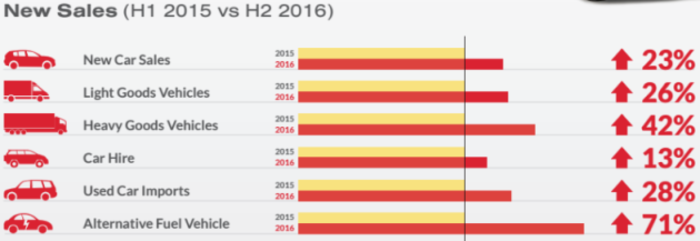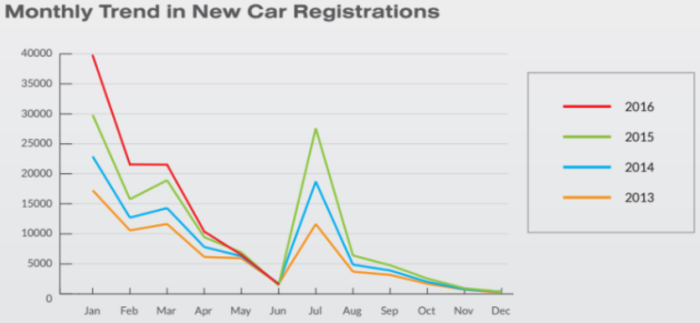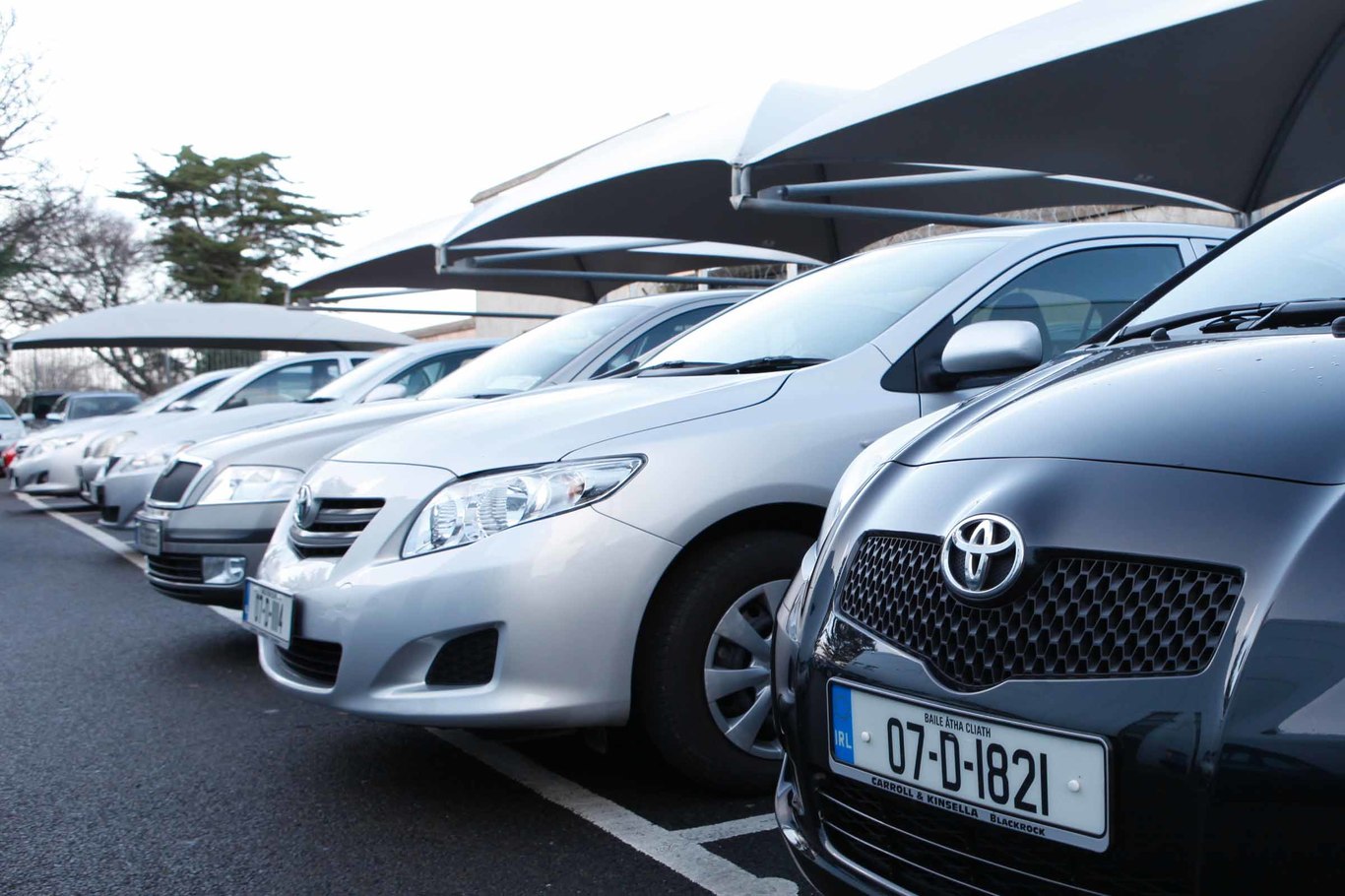New car sales could flatline next year after a bumper 2016
Motoring costs are down overall – but the price of insurance has gone through the roof.
AFTER A BUOYANT year for new car sales on the back of the resurgent economy, the industry could flatline again in 2017 as it reverts to a “natural state”.
The Society of the Irish Motor Industry (SIMI) today reported new car registrations for the first half of the year were up 23% on the same period in 2015.
Nearly €1 billion went to the Exchequer in VAT and VRT receipts during the six-month period, a near-30% increase on the previous year.
However the report, done in association with DoneDeal, noted there had been “some deceleration” in sales growth as the year went on – although the total number of cars changing hands was still expected to hit 152,000.

New car sales are seen as a good barometer of consumer confidence, as people are unlikely to shell out for such a major purchase if they don’t expect their finances to continue in good shape.
Economist and report author Jim Power said that despite the positive economic outlook, growth in 2017 “could be low or maybe even flat”.
“This slowdown in growth reflects a market approaching, but still lower, than its natural state, after a prolonged period of catch up, but one that is now shrouded in Brexit uncertainty,” he said.

Motoring costs down, insurance way up
The review also found the general cost of motoring had dropped, with the price of new cars down 3% on average. Petrol and diesel prices had dropped significantly, but those gains were offset with a near-40% hike in insurance costs.
SIMI president Alan Greene said the “soaring” cost of insurance – especially for the young or those with older cars – was “a serious concern”.
“We believe it’s time for the government to establish a strong review of the causes of the current high cost of insurance, similar to the Motor Insurance Advisory board that successfully achieved significant insurance cost reductions during the late 1990s,” he said.






